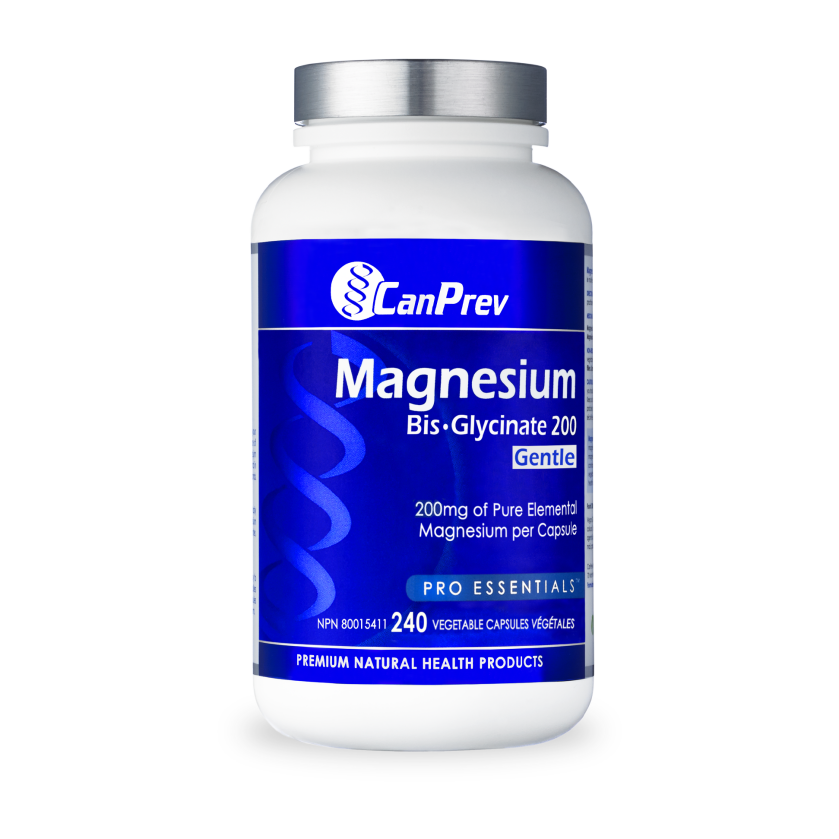How can magnesium help your mood?
Feeling anxious and sad are natural emotions, but if left unregulated it can wreak havoc on our well-being. That’s where magnesium steps in–an essential micronutrient that supports our mental health by regulating our mood.
Magnesium and GABA receptors in the brain
Magnesium plays an important role in a multitude of biochemical reactions in the body, including the brain. Neurological functions of magnesium include cellular energy production, regulating neurotransmitters such as serotonin, dopamine, and gamma-Aminobutyric acid (GABA), regulating ion gradients, and neuronal excitability.
GABA is an inhibitory neurotransmitter in the brain that plays a role in motor control, vision, and stress response. . Dysregulation of these systems can result in mood imbalances. Low magnesium levels have also been linked with:
- Higher levels of stress
- Insomnia or sleep disturbances
- Headaches or muscle pain/tightness
- Fatigue
Magnesium: Nature’s chill pill
Magnesium has quite the reputation for being a mood booster and stress reliever, so much so that it’s earned nicknames like “the original chill pill”.
Magnesium promotes relaxation through the sympathetic nervous system, thyroid and adrenal glands. Just like zinc and vitamin D, it impacts our mood through hormonal pathways. When magnesium levels dip, it’s been linked to lower testosterone in both men and women. And as it turns out, low testosterone isn’t just a concern for men—it’s also associated with lower moods in women.
Magnesium also works its magic on the hypothalamus and pituitary, two brain areas that control the release of stress chemicals. By keeping these in check, magnesium can help dial down anxiety and even prevent panic attacks at their root.
Balancing brain chemistry for better mood
Glutamate, a neurotransmitter, is like the brain’s cheerleader, crucial for brain development, learning, and memory. But we’re exposed to factors like chronic stress or sleep deprivation, things can go haywire.
Trauma or disruptions caused by stress or sleep deprivation can elevate glutamate levels, turning this normally helpful neurotransmitter into a troublemaker, causing damage and even cell death in the brain. Increased levels have been linked to conditions like major depressive disorder, which further complicates things.
Here’s where magnesium comes to the rescue. It’s like the ultimate balance-keeper, particularly for the NMDA receptors, a type of glutamate receptor. By blocking excessive calcium flow through these receptors, magnesium prevents an over-excited response in the brain, curbing the toxic effects of excess glutamate.
When magnesium levels are low and calcium and glutamate levels are high, it’s a recipe for chaos in the brain. This imbalance can disrupt how brain cells communicate, leading to mood disorders. Magnesium’s heroics lie in its ability to calm these processes down.
The brain-gut axis
Research indicates that a shortage of dietary magnesium can trigger depressive and anxious behaviour, as seen in studies conducted with mice. This deficiency revealed an imbalance in the microbiota-gut-brain axis, shedding light on how our gut bacteria play a pivotal role in regulating our mood and mental well-being.
Microbes in our gut transform amino acids like tryptophan into serotonin, directly influencing our mood. Interestingly, during times of stress, cortisol release can throw off the balance in our gut, affecting the rhythm of your digestive processes.
Taking magnesium with antidepressants
Magnesium interacts with serotonin, noradrenaline, and dopamine receptors–the brain’s mood regulators. While the exact mechanism isn’t fully understood, studies suggest a significant relationship. What’s fascinating is how magnesium seems to enhance the effects of antidepressants, acting as the sidekick to these drugs, making them even more effective.
Now, here’s a crucial note: if you’re taking an antidepressant along with magnesium supplements, it’s essential to consider potential interactions. This is particularly important with drugs like Wellbutrin, Pristiq, Cymbalta, Effexor, Celexa, Prozac, or Zoloft. Be sure to consult with your doctor before taking any new supplements.
Reach for magnesium bis-glycinate to balance your mood
Feeling tense, down, or just not yourself lately? Magnesium might be your missing link. Magnesium Bis·Glycinate 200 Gentle is a supportive option for managing factors associated with mood changes.
Magnesium is combined with glycine, an amino acid that acts as a neurotransmitter in the central nervous system. Glycine enhances magnesium’s anxiety-reducing properties and helps regulate NMDA receptors and glutamate transmission. Plus, magnesium bis-glycinate is highly bioavailable and is the optimal form to achieve therapeutic doses without having an impact on digestion.





